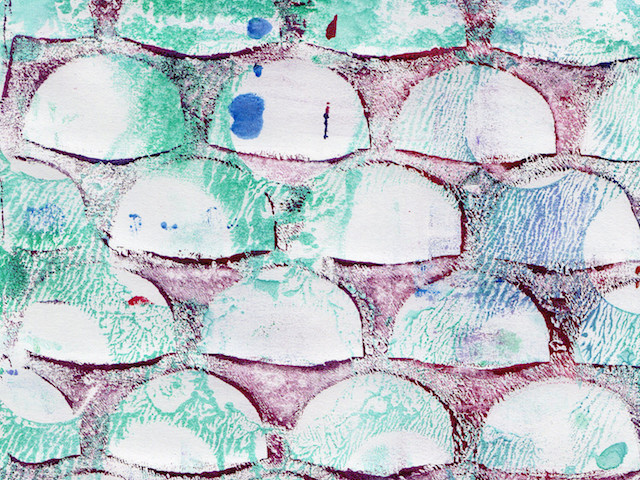‘A body on all fours, you / prefer crawling over standing, / your face permanently tilted / down, your eyes only seeing / the ground. How beautiful / the view is.’

October 25, 2016
Worm’s-Eye View
You’re content with eating scraps.
You let yourself fall for him
knowing he would never feel the same.
You knew, you knew, you knew.
And since it is your own doing,
you have to be realistic
about the kind of jobs
you’re qualified for.
So you’re a nanny, you’re
a cashier, a housemaid,
a waiter, someone serving
someone else, that’s
what you’re good at being:
A body on all fours, you
prefer crawling over standing,
your face permanently tilted
down, your eyes only seeing
the ground. How beautiful
the view is. And it is,
it is so beautiful: him with
his bride, their marriage.
You’re the flower boy
at the wedding. How perfect–
these petals thrown into the air,
once a part of a flower that
was the seed you planted.
Look at this garden, look
at the beauty you’ve created
from staying down here,
from your closeness to the ground,
this magnificent earth.
A Tale of Two Trees
They didn’t
but they could have,
was what my mother kept
repeating
the day after a tornado
knocked down the oak tree
on her friend’s front lawn
and it crashed
into their bedroom, the bark
mere inches from their bodies,
twigs and newborn leaves
falling onto their faces
like snow.
They could have died, she said.
Yes, her friends,
who had found her the job
at the aircraft factory,
who eased her loneliness
with Saturday night karaoke,
were alive,
but what if?
What if the tornado had tore
through their house, what if the tree had been
heavier? What if there hadn’t
been a tree at all?
And for that reason, my mother
couldn’t bear the sight
of the pear tree on our lawn.
It had to go, she said,
but I couldn’t understand
the terror it elicited from her.
All I saw
was the shade its thick foliage
provided on summer days,
my palms red from climbing
to the top, where the view
wasn’t worth the pain,
but I was full of pride,
I’d done something
that only big kids could do,
I had done it after failing
to climb the rope in P.E.
and the other sixth graders
laughing at me, my puny arms,
so yes, up there
up so high
the air smelled different
like victory, like I told you so,
like the stillness after a rainstorm.
I knew the truth:
the pear tree would never kill us
on purpose.
Something else must be forcing it,
using it,
our poor pear tree.
The wind, the tornado,
was the real culprit.
It should be the one
exiled
from our life.
But my mother didn’t agree.
She looked at me
as though
there was something about death
I couldn’t understand at my age.
When you’re older,
you’ll thank me, she said,
as the pear tree
slammed onto the sidewalk,
crushing its children
underneath its weight.
